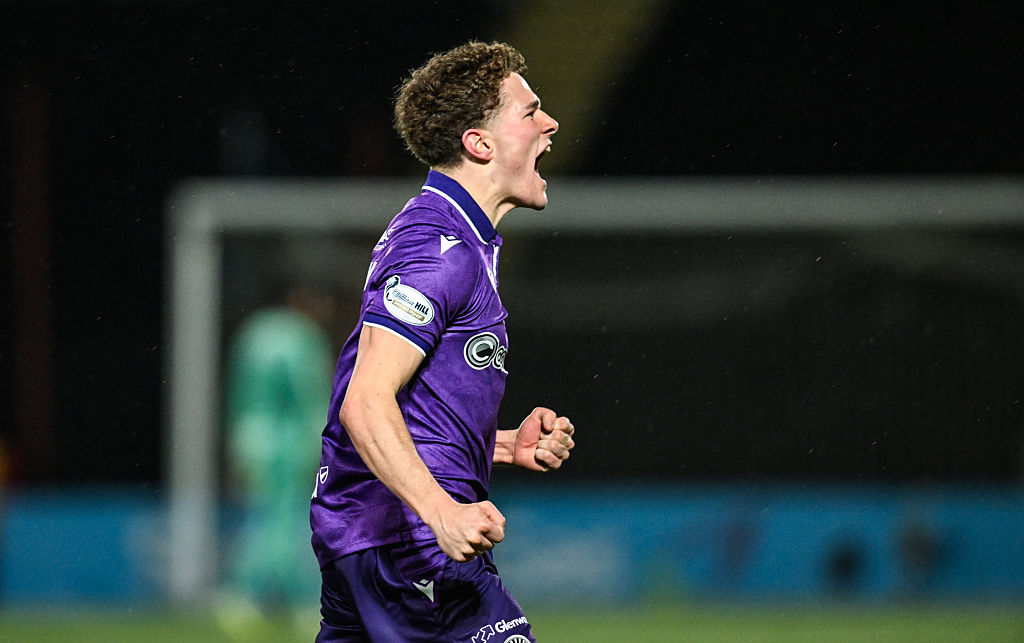ACoN Diary 1: volcanoes, oil and a dancing Santa
The best features, fun and footballing quizzes, straight to your inbox every week.
You are now subscribed
Your newsletter sign-up was successful
Want to add more newsletters?

Five times a week
FourFourTwo Daily
Fantastic football content straight to your inbox! From the latest transfer news, quizzes, videos, features and interviews with the biggest names in the game, plus lots more.

Once a week
...And it’s LIVE!
Sign up to our FREE live football newsletter, tracking all of the biggest games available to watch on the device of your choice. Never miss a kick-off!
Join the club
Get full access to premium articles, exclusive features and a growing list of member rewards.
Jonathan Wilson agreed to furnish FourFourTwo.com with a diary of his time in Gabon and Equatorial Guinea for the 2012 Africa Cup of Nations. Here's the first instalment.
The descent into Malabo comes abruptly. You break through the mist that has covered the Equatorial Guinea capital for the two days since I got here, and see nothing but the grey Atlantic and a splodge of volcanic rock covered in thick forest. Then suddenly there are a handful of red-tiled roofs amid the trees and the plane is screeching along the runway.
The road into town is broad, modern and all but empty, lined with new-built concrete buildings. At the first junction, a flatbed truck packed with Chinese construction workers crosses in front of us; a little further on I notice that a large purple-brown building on the right is decorated with large Chinese characters. ThereâÂÂs not much doubt where the moneyâÂÂs coming from for much of the building work.
ThereâÂÂs a sense of incongruity about the whole place, something that is only enhanced by the hotel, which â conveniently â backs on to the stadium. Twelfth Night has been gone a fortnight, but in the car park are inflatable Santa Clauses, while a nativity scene stands in the lobby next to a 5ft-tall model Santa, who writhes provocatively to We Wish You A Merry Christmas and thrusts his pelvis while calling for figgy pudding.
ItâÂÂs welcoming, albeit in a slightly weird way, and that is really what this tournamentâÂÂs all about. Until now, after all, who in the rest of the world cared about Equatorial Guinea? ThereâÂÂs been a pattern to recent Cups of Nations: Angola two years ago, Equatorial Guinea and Gabon this time round, and it was supposed to be Libya next until the uprising against Gaddafi intervened. These are all oil-rich countries (as are Russia and Qatar, which may not be coincidence), and that they want to spend their wealth on hosting tournaments is not charitable largesse.
This is about laundering the image of the country, raising its profile, making it seem âÂÂnormalâÂÂ. Two years ago, the Angola captain Fabrice Akwa said the Cup of Nations was a chance to prove his nation was not just âÂÂoil, war and povertyâÂÂ, and that surely is the aim of other hosts (which makes it all the more frustrating that getting visas for Equatorial Guinea and Gabon has proved so difficult â after two months of discussions, I got mine about three hours prior to the embassy closing the day before my flight left; I know of at least five other journalists who gave up.)
And, whatever you think of the ethics of spending money on hosting a tournament when there are social projects desperate for cash, local enthusiasm is clear. The Ivory Coast team bus was mobbed by fans, all seemingly desperate to bang on the windows, when they arrived. Local television has been showing a non-stop churn of footballers smiling and shaking hands with men in suits, interspersed with people in Equatoguinean colours dancing on the wings of dilapidated planes (grounded) cut with a montage of great Cups of Nations goals.
The best features, fun and footballing quizzes, straight to your inbox every week.
In Malabo, my taxi driver insisted yesterday, the excitement is only going to grow. âÂÂEverybody who likes football has gone to Bata for the opening game,â he said. âÂÂOn Sunday, woooooh....â On Sunday, Ivory Coast play Sudan, and then Burkina Faso face Angola. It should be quite a day.
Follow the Cup with FourFourTwo's news, analysis and new ACoN version of Stats Zone â it's all free!
Jonathan Wilson: ACoN Diary 2: Drogba, Dogtanian and a double-header in Malabo
Michael Cox: How will Premier League strikers fare at ACoN 2012?
Jonathan Fadugba:Why Africa's 41st-best football nation is hosting ACoN 2012
 Join The Club
Join The Club










